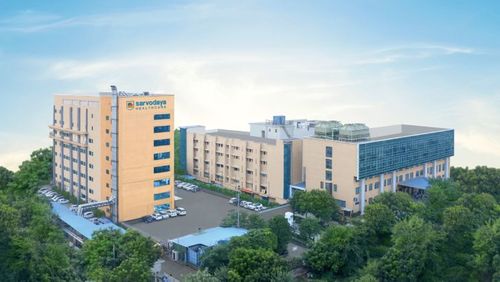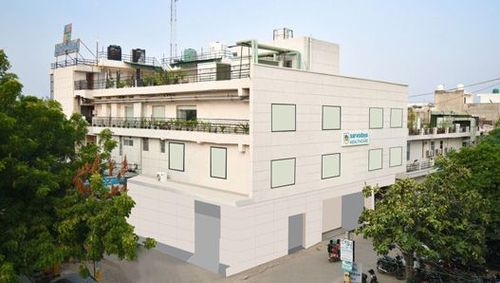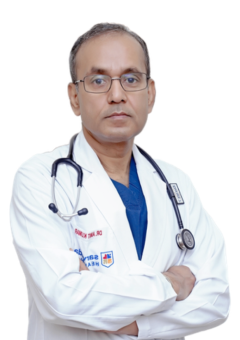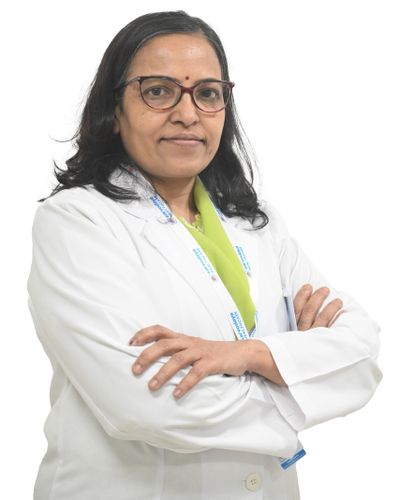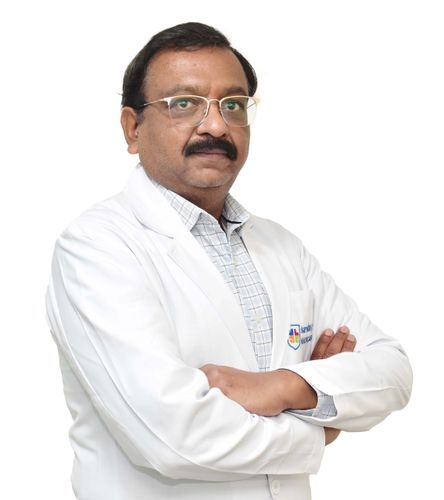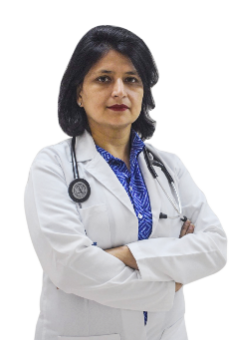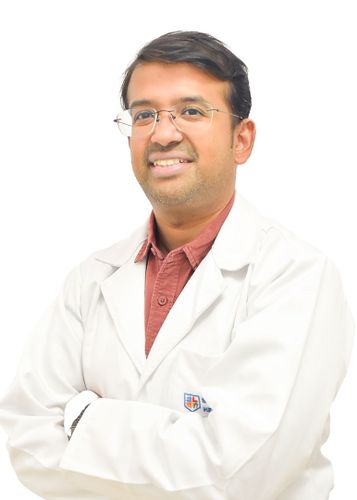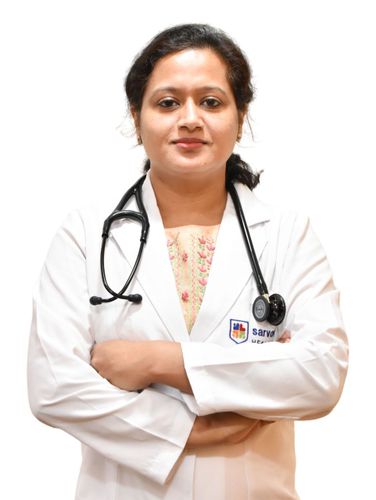Overview
High blood pressure (hypertension) occurs when blood consistently exerts excessive force on artery walls. It is diagnosed when readings are consistently above 140/90 mmHg, while 120–139/80–89 mmHg is considered pre-hypertension.
Uncontrolled hypertension increases the risk of heart disease, stroke, and kidney problems. At Sarvodaya Hospital, our experienced team provides personalised high blood pressure (hypertension) treatment through accurate monitoring, evidence-based medications, and lifestyle guidance.
Symptoms of High Blood Pressure (Hypertension)
- Sometimes, hypertension may not exhibit any symptoms (called the "silent killer").
- Some of the other common symptoms include:
- Headaches, especially at the back of the head
- Dizziness
- Shortness of breath
- Chest pain
- Visual changes
- Nosebleeds
- Severe headache with confusion (in advanced cases)
- Nausea or vomiting (with severe hypertension)
- Fatigue or weakness
Causes of High Blood Pressure (Hypertension)
- Age, family history, and genetics
- Lifestyle factors
- Medical conditions
- Stress and medications
- Pregnancy-related hypertension
Diagnosis of Hypertension
Accurate diagnosis of hypertension confirms blood pressure patterns, assesses organ function, and guides safe treatment planning, ensuring patients receive expert care from the best preventive cardiologist in Faridabad.- Clinical assessment and monitoring – Multiple readings on different occasions confirm diagnosis; home monitoring and 24-hour ambulatory monitoring provide accurate patterns.
- Blood and urine tests – Evaluate kidney function, cholesterol, and diabetes; urine tests assess protein leakage, a sign of kidney involvement.
- Cardiac evaluation (ECG and Echocardiogram) – Detects strain on the heart, structural changes, or rhythm disturbances caused by long-standing high blood pressure.
- Eye examination – Checks for retinal damage, which often reflects the severity and duration of hypertension.
- Risk stratification – Overall cardiovascular risk is analysed to guide treatment intensity and personalised care.
Treatment of Hypertension
- Lifestyle modification – DASH diet, sodium reduction, weight management, regular physical activity, stress control, and smoking cessation form the foundation of effective treatment for hypertension.
- Medications – ACE inhibitors, ARBs, diuretics, calcium channel blockers, and beta-blockers are prescribed based on individual risk factors, comorbidities, and blood pressure patterns.
- Combination therapy – Often required for optimal control; multiple medications may be combined and adjusted with regular monitoring to achieve the target blood pressure.
- Device-based treatments – Reserved for selected patients with resistant hypertension, including renal denervation or baroreceptor activation therapy under specialist supervision.
- Integrated cardiovascular care – Comprehensive management addresses all risk factors, including diabetes, cholesterol, and lifestyle, ensuring personalised and long-term heart health.
Prevention & Lifestyle Modification
At Sarvodaya Hospital, we guide you at every step, empowering you with the right habits to prevent high blood pressure and protect your heart through expert high blood pressure (hypertension) treatment, helping you maintain lifelong cardiovascular health.
- Limit alcohol and avoid smoking – Reducing or eliminating alcohol and quitting smoking lowers blood pressure, decreases heart strain, and supports long-term cardiovascular well-being.
- Maintain a healthy weight and stay active – Regular aerobic and resistance exercise, combined with balanced nutrition, helps control weight, improve circulation, and reduce stress on your heart.
- Follow a heart-friendly diet – Include vegetables, fruits, whole grains, lean proteins, and healthy fats while limiting salt, sugar, and processed foods to naturally manage blood pressure.
- Manage diabetes and cholesterol – Keeping blood sugar and lipid levels in range reduces the risk of secondary heart complications and supports overall vascular health.
- Reduce stress and ensure quality sleep – Mindfulness, yoga, meditation, and adequate sleep help regulate blood pressure and enhance heart resilience.
Pre and Post Treatment Lifestyle Modifications
Pre treatment
- Comprehensive health assessment including family history, lifestyle habits, and current medications.
- Baseline tests: blood pressure patterns, kidney function, heart health, and diabetes screening.
- Education about target goals, medication timing, and lifestyle modifications is needed.
- Home monitoring setup with proper cuff size and technique training.
Post treatment
- Regular follow‑ups to monitor blood pressure control and medication effectiveness.
- Lifestyle counselling: diet planning, exercise programmes, and stress management techniques.
- Medication adjustments based on response, side effects, and changing health status.
- Annual comprehensive reviews, including heart, kidney, and eye health assessments.


